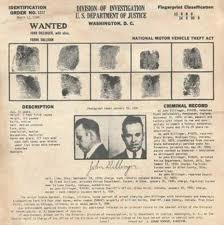Matthew S. Abdo & Cy M. Abdo
What is the difference between criminal traffic tickets and civil infractions?
Traffic offenses are classified as non-criminal or criminal. A non-criminal traffic violation is called a “civil infraction”. Civil infractions do not carry any jail and do not go on an offender’s criminal record. A fine is often imposed for a civil infraction and they usually carry points that will be abstracted on the offender’s driving record. A criminal traffic violation almost always carries points, a fine, along with possible jail and probation. Click here for a link to the Michigan Secretary of State Point System.
In this article, ABDO LAW will explain the differences between various traffic offenses and why you should fight every traffic ticket to avoid points and higher insurance premiums. Avoiding a criminal record may be an additional goal if you are charged with a criminal traffic offense such as leaving the scene of an accident, driving while license suspended or reckless driving. The Michigan Traffic Offense Code contains a complete list of all Michigan traffic offenses along with penalties, points and license sanctions. Here are the goals that we have when we fight a traffic ticket:
- Avoid points
- Avoid any offense on driving record
- Avoid higher insurance premiums
- Avoid a criminal traffic conviction
Civil Infractions: A civil infraction can result in the following sanctions: points on your driving record with secretary of state and monetary sanction (fine) to the court system. Not all civil infractions result in points or go on your driving record. If you are wondering, there are a few civil infractions which we can get in a plea deal to resolve a traffic ticket and keep a client’s record clean. The following offenses do not appear on your record and do not carry any points: double parking, impeding traffic and sudden acceleration. Yes, the court remains able to assess a fine for these matters. However, insurance rates will not be impacted since these offenses do not show up on your record. That makes it a huge deal to get a traffic offense reduced to a civil infraction which DOES NOT appear on your driving record. Here are a few examples of common civil infractions that can hurt you because they carry points and appear on your driving:
Civil Infractions
- Speed 1 to 10 mph over limit, 2 points
- Speed 11 to 15 mph over limit, 3 points
- Speed Over 15 mph over limit, 4 points
- FTSACD (rear end accident), 2 points
- Disobey stop sign, 3 points
- Disobey traffic signal, 3 points
- Careless driving, 3 points
Criminal Traffic Violations: When an offense is labeled a crime or criminal traffic violation, it can carry the following sanctions: points, fine, court costs, possible jail and probation. If the matter is a misdemeanor traffic violation, it can carry up to 2 years probation. A felony involving a motor vehicle (such as fleeing or OWI 3rd), can carry up to 5 years probation. Most criminal moving traffic violations carry 6 points. Here is a list of the most common criminal traffic offenses that are also some of the most prevalent misdemeanors that appear in every district court located in the counties of Macomb, Oakland, Wayne and St. Clair:
Criminal Traffic Offenses
- Reckless Driving
- Fail to stop after accident
- Fleeing and eluding
- Drunk driving (OWI)
- Driving while license suspended (DWLS)
Insurance companies get rich when you just pay a traffic ticket!
Don’t surrender to the police, courts and insurance companies when you get a traffic ticket! There is never any benefit to just paying a ticket without trying to fight it. Absolutely Never! Based upon our experience, traffic tickets are fought and won every day in every Metro Detroit district court located in Macomb, Oakland and Wayne counties. Fighting a traffic ticket with an experienced local attorney can save you from getting jammed points and up with higher insurance premiums.
There are ways to avoid points and avoid a ticket from getting abstracted on a driving record?
Yes, there are ways to get traffic tickets under control by avoiding any points and avoiding anything from appearing on an offender’s driving record. Most of the time, an attorney can negotiate for reduction of the ticket which usually means less points. When this occurs, the ticket is amended to an offense such as “impeding traffic” or “double parking” which are zero point violations that do not appear on the driving record. We understand that you might be thinking that “impeding traffic” or “double parking” do not have anything to do with the original ticket. However, the key is to AVOID POINTS and AVOID A RECORD!
Clean Slate Law Allows for Expungement of Certain Criminal Traffic Violations
Prior to 2021, a criminal traffic violation was could NOT be expunged in Michigan. Now, under Michigan’s new expungement rules, certain traffic misdemeanors may be expunged. Also, effective February 19, 2022, an individual may be eligible to get one offense expunged for operating while intoxicated or impaired. There are exceptions to this rule and the following offenses involving a motor vehicle are not eligible for expungement:
- Any traffic violation involving an injury or death.
Effective on February 19, 2022, a first and only driving under the influence can be expunged. Whenever in doubt, contact an expungement lawyer to find out if your case is eligible for expungement.
Links to Macomb and Surrounding Area Courts
Here is a sample of courts that surround our office where we frequently practice and have had success in getting thousands of tickets dismissed!
- Clinton Township, Harrison Township, Mt. Clemens and the 41-B District Court
- Eastpointe and the 38th District Court
- Chesterfield, New Baltimore and the 42-2 District Court (Division 2)
- Romeo, The North End, and the 42-1 District Court (Division 1)
- Roseville, Fraser and the 39-A District Court
- St. Clair Shores and the 40th District Court
- Shelby Township, Macomb, Utica and the 41-A District Court
- Sterling Heights and the 41-A District Court
- Grosse Pointe Communities and Their Municipal Courts
- Rochester, Rochester Hills, and the 52-3 District Court
- Royal Oak and the 44th District Court
- Warren, Centerline and the 37th District Court
- Madison Heights and the 43rd District Court
 Michigan Criminal Lawyer Blog
Michigan Criminal Lawyer Blog





